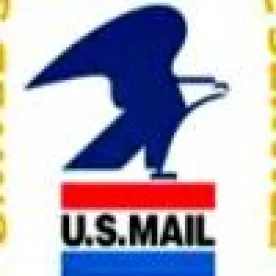It’s no secret that the U.S. Postal Service (USPS) has been struggling financially for well over a decade. One means of combatting its struggles has been to contract with third-party resellers to market USPS services and drive customers to it. Indeed, just one of those resellers, Express One, delivered over $3 billion in revenue to the USPS in the past 12 months alone. Although the annual operating budget of the USPS is $77 billion, $3 billion is still real money—especially since the USPS suffered losses of $6.9 billion last year.
The USPS apparently does not ascribe to the idiom “don’t bite the hand that feeds you,” as it allegedly stole Express One’s trade secrets to create its own competing e-commerce business and cut Express One out. That could end up costing the USPS more than $500 million in damages, plus injunctive relief, if Express One can prove wrongdoing.
According to a 42-page complaint it filed in the U.S. District Court in Utah, Express One was the first reseller to contract with the USPS in 2009, and “[o]ver the last 13 years, Express One has invested a massive amount of time, effort and resources establishing relationships with its platform partners and building its reseller business, to the exclusion of other business opportunities.” In 2019, however, Express One alleges that the USPS decided to steal its trade secrets and use them to set up a competing e-commerce platform:
[T]he USPS devised a plan by which it would convince Express One to share its confidential customer, pricing and business information with the USPS so that the USPS could develop its own competing platform. The ultimate goal was to implement a competing USPS platform, terminate the reseller program, including Express One’s reseller contract, and take control of Express One’s business and profit margin. In order to execute that plan, the USPS made numerous promises and misrepresentations to Express One to induce Express One to trust the USPS, continue investing in and building its reseller network, agree to a new contract, and share its confidential customer, pricing and business information with the USPS.
In May 2022, the USPS announced the launch of a new e-commerce platform called “USPS Connect eCommerce” and promptly terminated its relationship with Express One. According to Express One, the USPS’s conduct, “if allowed to stand, will not only cost Express One hundreds of millions of dollars in damages, but will force the company out of business altogether.”
Express One asserts claims for breach of contract, fraudulent inducement, and trade secret misappropriation under the Defend Trade Secrets Act and the Utah Uniform Trade Secrets Act, among other things. Interestingly, it also asserts a claim for “Misappropriation of Trade Secrets – Constitutional Takings,” which, of course, could only be brought against the government and implicates the takings clause of the Fifth Amendment of the U.S. Constitution (“nor shall private property be taken for public use, without just compensation”).
Express One is seeking damages in excess of $500 million, as well as declaratory and/or injunctive relief prohibiting the USPS from terminating its contract with Express One and misappropriating its confidential and proprietary business information. In another interesting twist, Express One also seeks a declaration and/or injunction prohibiting the USPS from engaging in unfair competition in violation of the federal Postal Accountability and Enhancement Act of 2006 (PAEA). The PAEA only applies to the USPS, and the claim adds another noteworthy aspect to the dispute. Among other things, the PAEA prohibits the USPS from:
(1) establish[ing] any rule or regulation (including any standard) the effect of which is to preclude competition or establish the terms of competition unless the Postal Service demonstrates that the regulation does not create an unfair competitive advantage for itself or any entity funded (in whole or in part) by the Postal Service;
(2) compel[ling] the disclosure, transfer, or licensing of intellectual property to any third party (such as patents, copyrights, trademarks, trade secrets, and proprietary information); or
(3) obtain[ing] information from a person that provides (or seeks to provide) any product, and then offer[ing] any postal service that uses or is based in whole or in part on such information, without the consent of the person providing that information, unless substantially the same information is obtained (or obtainable) from an independent source or is otherwise obtained (or obtainable).
This lawsuit is sure to deliver some fascinating takeaways as it progresses, in particular because the alleged wrongdoer is a federal agency and the plaintiff asserts claims under the Fifth Amendment and the PAEA.




 />i
/>i
